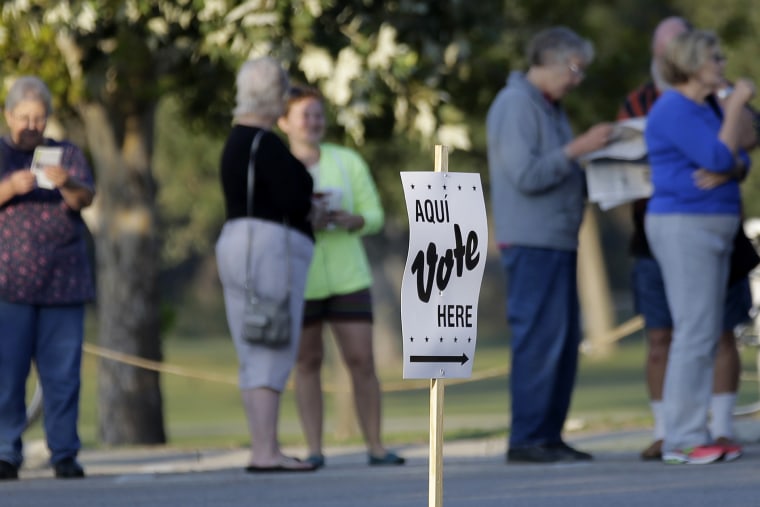NEW ORLEANS -- Texas's strict voter ID law was struck down last fall by a federal judge, who ruled that it was racially discriminatory. But now it could be headed back for a second look.
A three-judge federal appeals panel heard Texas's request to reinstate the law Tuesday morning. And the judges strongly suggested in their questioning that they were leaning towards sending the case back to the district court for further review.
Texas said District Court Judge Nelva Gonzales Ramos erred when she found last October that the law unconstitutionally burdens the right to vote, discriminates against minorities, and is a poll tax.
"Not a single plaintiff has shown that they couldn't vote because of this law," said Scott Keller, the Texas solicitor general.
Related: Right to vote at stake in Texas voter ID appeal
Keller also argued that the law "doesn't come close to" being a poll tax, because even though it may require a fee to get a birth certificate in order to then get an ID, the ID itself is free.
And Keller noted that despite the district court finding that Texas intentionally discriminated against minorities, an extensive discovery process had turned up no smoking gun showing overt racial bias among the law's proponents.
But lawyers for the plaintiffs said that kind of smoking gun evidence isn't necessary under the Voting Rights Act -- a claim with which the judges seemed to agree. And they said there's no reason to overturn the district court's finding that the law will significantly burden the right to vote, especially for blacks and Hispanics.
"What Texas has done here is more severe than any other union in the nation," Chad Dunn, a lawyer for the plaintiffs.
Around 600,000 registered Texas voters, disproportionately minorities, lack the ID needed to vote under the law, passed by Republicans in 2011.
Again and again, Judge Catharina Haynes seemed to argue for sending the case back to Judge Gonzales Ramos. She noted that a major statewide election had been held since the district court's ruling last October, which could offer key evidence about the controversial law's real world impact.
"Were people having trouble? Were there in fact problems?" Haynes asked, suggesting that the district court should be asked to incorporate the election as additional evidence.
Erin Flynn, a lawyer for the U.S. Justice Department, which is challenging the law, countered that looking at one election doesn't tell you much. "Turnout is not a good proxy for identifying how burdensome requirements are," Flynn said.
And Dunn said that the record would show the last election was a "disaster" for the plaintiffs and thousands of others. Numerous stories have emerged of would-be voters who were disenfranchised by the law last fall, which was put into effect by a last-minute Supreme Court order.
Related: New study rebuts John Roberts on Voting Rights Act
Haynes, an appointee of President George W. Bush, also at times raised the idea of asking the district merely to find a narrower remedy, rather than striking down the law in full, as it did.
She suggested that voters at least be required to show a registration card. "Why wouldn't that cure the problem?"
"The questions of the judges suggested that they were looking at both whether or not the remedy was more broad than it needed to be, and whether or not additional fact-finding would be helpful," Myrna Perez, a top lawyer for the Brennan Center for Justice, which is helping to bring the challenge, said after the hearing.
The panel's other two judges, Chief Judge Carl Stewart and Judge Nannette Brown, both appointed by Democratic presidents, held their cards closer to their chests. But Stewart at times suggested he too might favor returning the case to the district court.
That result would leave the law, and the fate of hundreds of thousands of potential voters, in limbo, four years after the measure was first passed.
